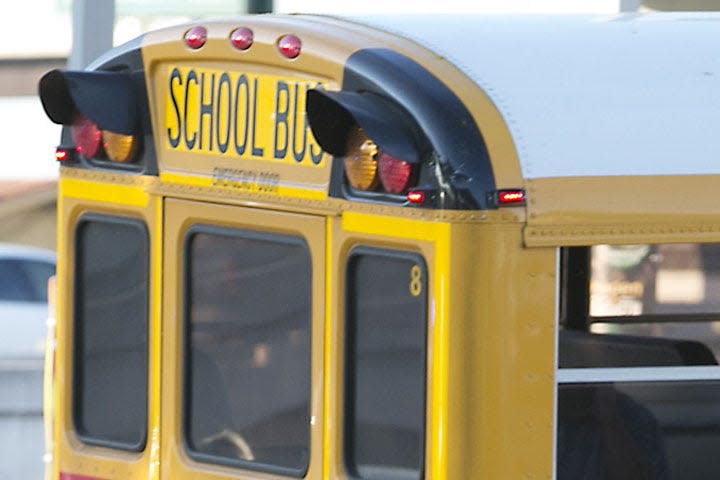Bill allowing chaplains in schools raises some concerns

- Oops!Something went wrong.Please try again later.
The Texas House and Senate have approved a bill that would let school districts employ chaplains as a way to ease the shortage of counselors in schools, sending the bill to Gov. Greg Abbott to become law.
While some lawmakers and rights advocacy groups have raised concerns about the use of religious-affiliated staff in public schools, law experts say the bill skirts along a legal gray area concerning faith in campuses.
Senate Bill 763 would allow districts to employ chaplains or accept them as volunteers to provide support for students.
During the final House vote on the bill this week, Rep. James Talarico, D-Austin, questioned the lack of requirements for participants in the chaplain program.
“Are you aware there are internet services that will ordain a chaplain with just 40 hours of training?” Talarico asked Rep. Cole Hefner, R-Mt. Pleasant, while debating the proposal.
Hefner, who was explaining the bill, said those rules would be up to local districts.
“I have complete and total faith in our schools to make the decisions to put the regulations they see fit in place to qualify these individuals,” Hefner said.
For Brian Guinther, chief operating officer of the International Fellowship of Chaplains, being a chaplain is about helping people, not trying to convert them.
“The vast majority of times, a person seeking chaplain help might not even know the faith that the chaplain believes in,” Guinther said.
However, the proposal raised concerns for some over a chaplain's qualifications.
Chloe Goodman, constituent services manager with Equality Texas, worries chaplains wouldn’t be trained to the same standards as counselors.
Goodman is also concerned the religious association could turn away some students.
“If they’re providing spiritual guidance counseling, I don’t foresee queer kids or nonreligious students going to them for guidance,” Goodman said.
And in small districts, opponents of the bill worry, a school might employ only a chaplain, giving students no other option.
The bill will operate in a legal gray area, said Steven Collis, director of the University of Texas Bech-Loughlin First Amendment Center.
“We have to look at historical practices when it comes to what a government can do and can’t do,” Collis said.
It’s not uncommon for public entities, such as police departments or military branches, to employ chaplains, Collis said.
The question really comes down to intent, which is hard to prove, and the way districts implement the law, he said.
“It would be a violation if it’s set up in a way that favors one religion or if students are forced to go see chaplains,” Collis said. “It would be a problem if chaplains are serving in a way that is preaching.”
If school districts use the rule in a way that clearly favors one religion over another, giving students of other faiths nowhere to go, that could create a problem, he said.
“The law in this area isn't perfectly clear and never has been,” Collis said. “I think there’s a way to set this up that will pass the current understanding of the Establishment Clause. I also think it's rife with potential pitfalls.”
The Establishment Clause of the U.S. Constitution prevents the government from adopting a state religion.
Goodman was also concerned a chaplain program could move a step toward bringing Christianity into public schools.
It was a concern Talarico raised when he questioned the motivations of the National School Chaplains Association, which spoke in favor of the bill during a committee hearing.
The association’s CEO, Rocky Malloy, has said he wants to bring Christianity into classrooms.
The association didn’t return American-Statesman requests for comment.
Guinther argues chaplains aren’t exclusive to a single faith.
“Chaplaincy is about helping others handle the stress of life, not drawing people to a specific faith,” Guinther said. “Now, faith may be what motivates chaplains to show up to help others, but is not something that chaplains should ever push on others.”
The bill has passed both chambers and is awaiting Gov. Greg Abbott's approval to become law.
This article originally appeared on Austin American-Statesman: Bill allowing chaplains in schools raises some concerns

